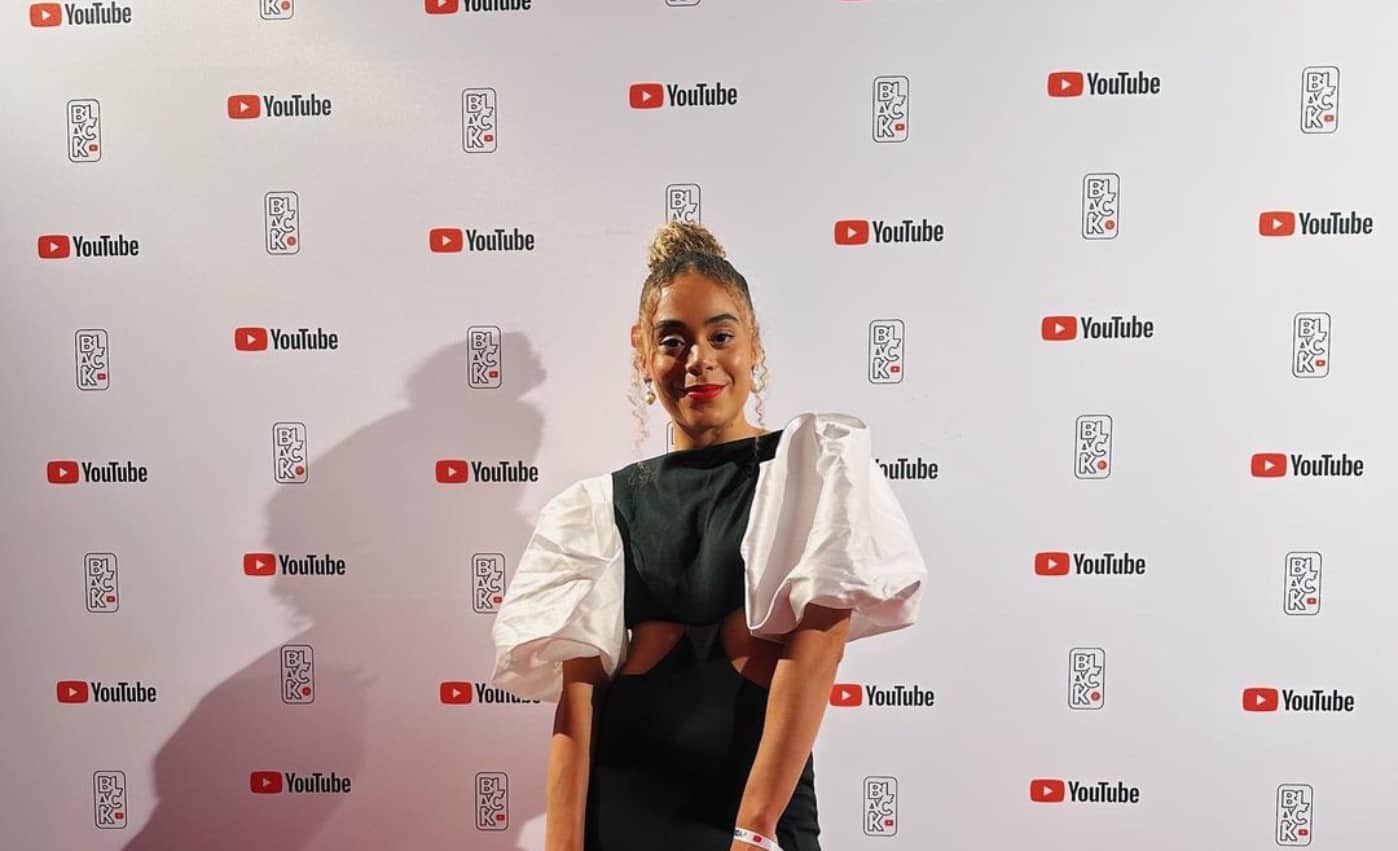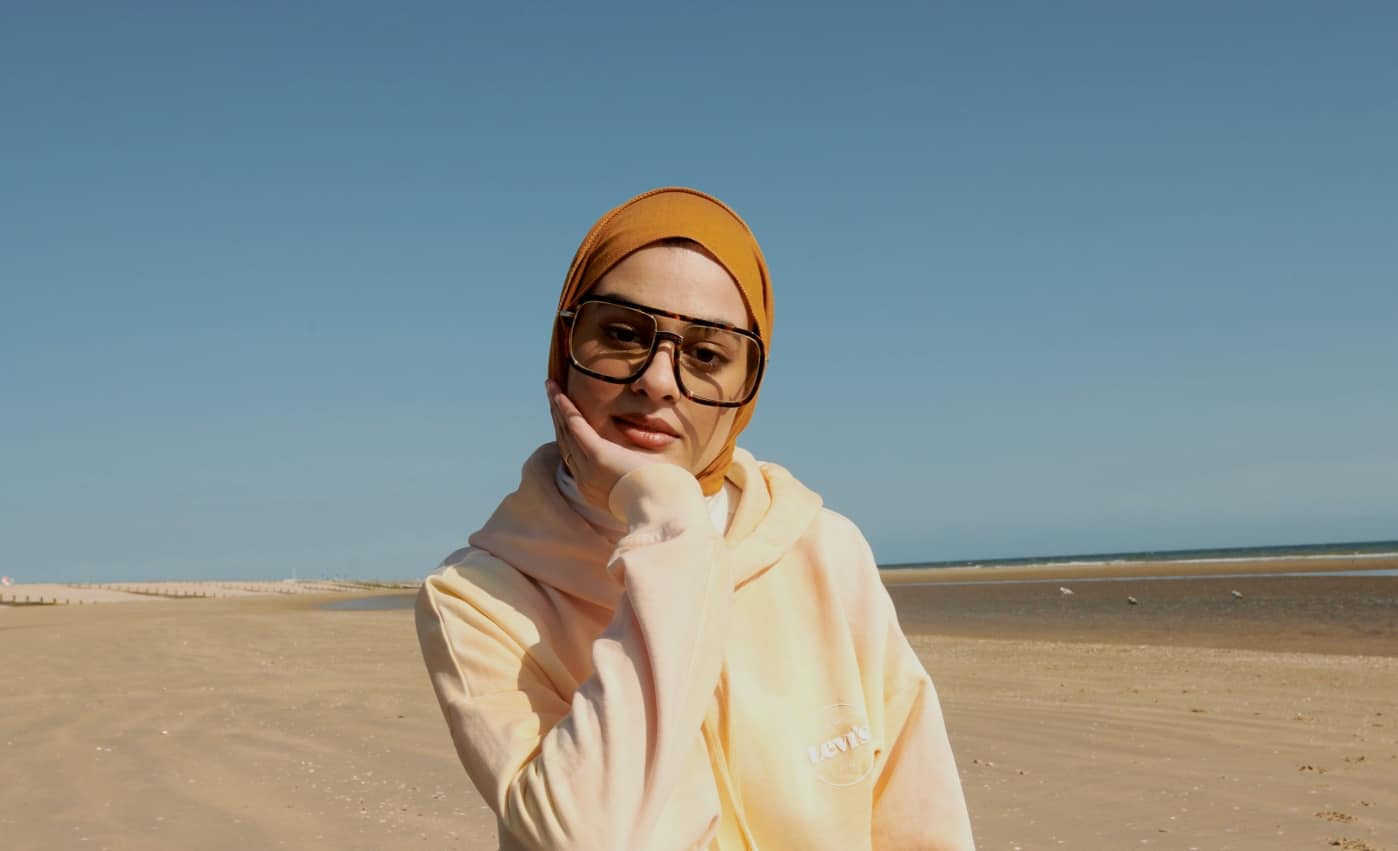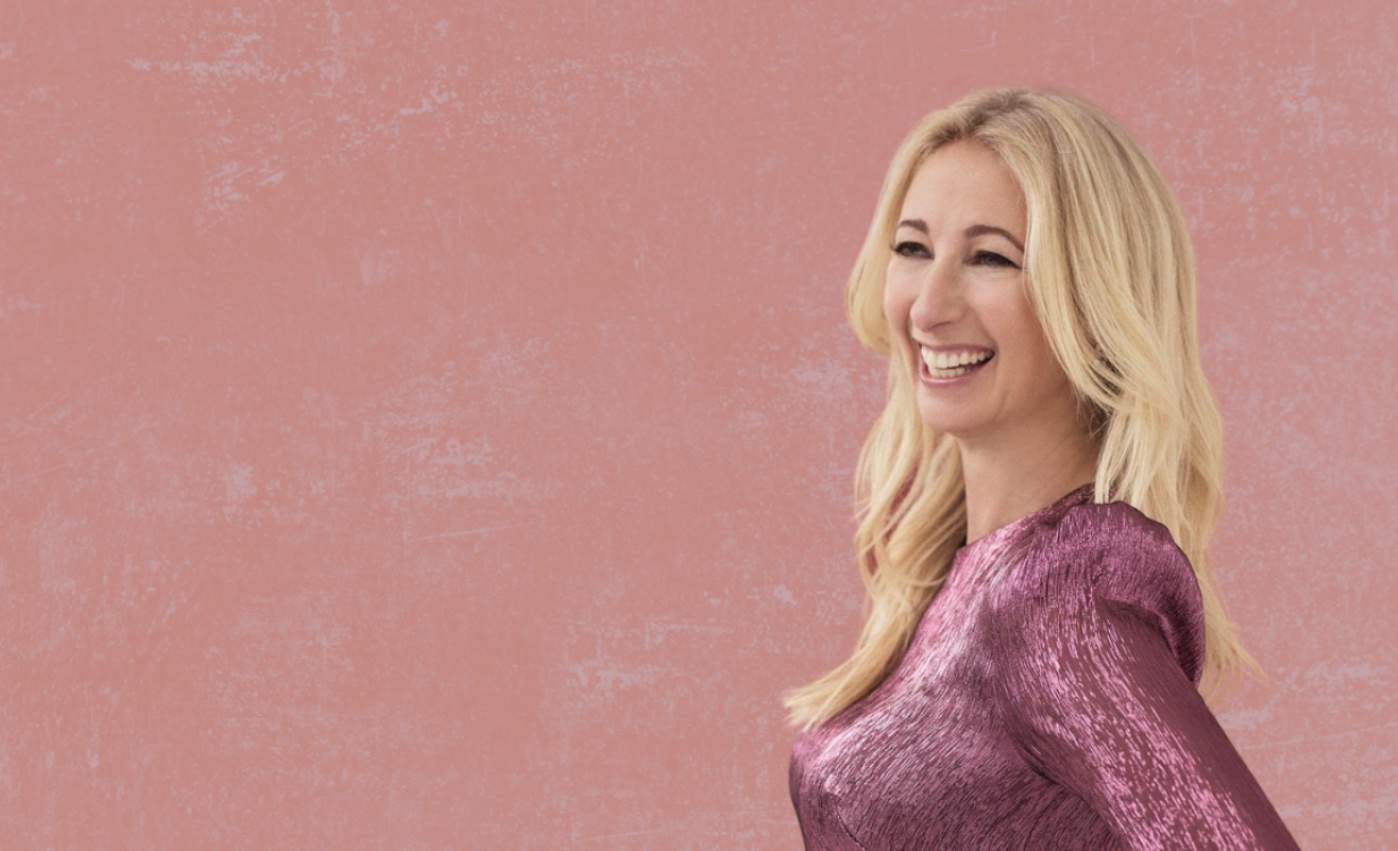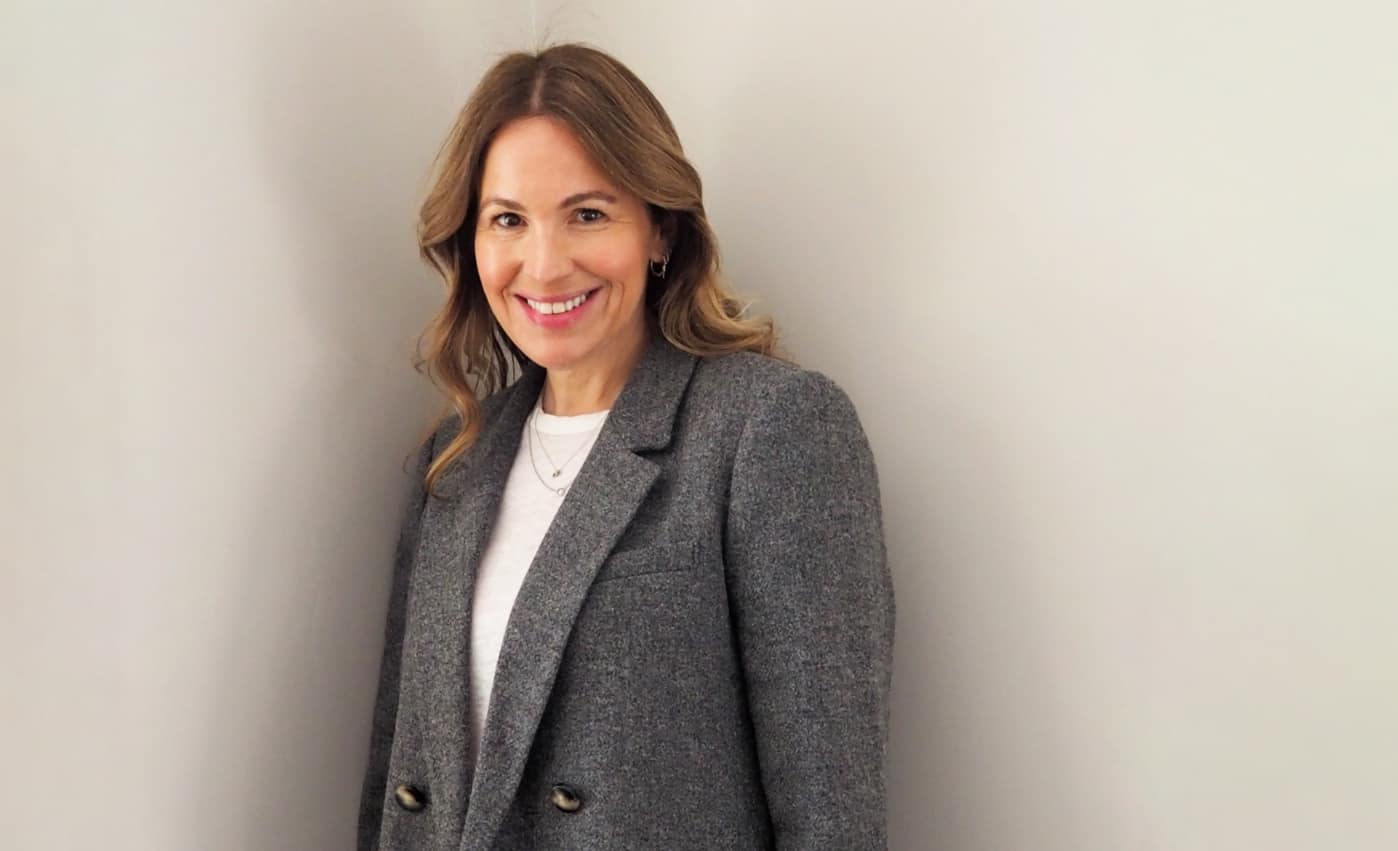Chloë Downes went to university to prove a point. Growing up, this second-generation South Londoner says she was “someone people didn’t think was smart until they saw my grades or saw how I was doing at school. I wanted to prove to everyone else that I could go, and then I forced myself to get a First.”
One of the many impressive things about Downes is her confidence and her inability to obfuscate. I don’t like the phrase “they tell it how it is” particularly, it feels reductive and ascribed to awful politicians who are campaigning on a populist agenda, so I won’t. But Downes’s brand of certainty and surety means she would have my vote.
SHFT was founded by Downes in April 2021, and represents significant creators such as Mikaela Loach, Leoni Joyce and David Larbi. It describes itself as a “full-service talent management agency on a mission to shift the influencer industry in the right direction. We forget the tick boxes and focus on the individuals.” This mission statement is at the core of everything that drives Downes: to move the dial in almost every area of working life, to create opportunity for those not traditionally represented, both as creators and on her staff, to have a happy inspiring workplace, to be transparent in the way that she conducts her business.
Downes originally wanted to be a dancer. “From the age of six I was basically performing” so she grew up in creative spaces. When she was 15, she had, in her words, “a weird midlife crisis” and decided she didn’t want to be a dancer any more. So she decided to go to university. She is clear to me that this was quite a decision on her part. Very few people from her girls’ school went on to university, and none of her friends did. Careers advice at the school meant being told you could be a hairdresser, so Downes decided to prove them wrong. Her mother found a university course book and they decided on event management, thinking it would be the perfect blend of Downes’ skills, both scientific and artsy.
She got into influencer marketing in an equally haphazard way. After university she worked on global events for a year, travelling the world, but she wasn’t happy with the company she was in. She turned to a Facebook group called SocialFixt, which helps “young people of colour find jobs in the creative space”. There was a job advertised at talent agency Sixteenth and although Downes had simply no interest in influencers – “the only two people I followed that didn’t follow me back on Instagram were Rihanna and The Rock” – she took the job. There she found “I was good at it and thought ‘I actually don’t hate this so I’m going to going to carry on’.” Downes says the key thing for her was that it was a small team which meant she had direct access to her manager. She was promoted quickly and then left to help The Fifth set up its talent arm, before moving on to set up her own agency SHFT – all within three years.
Setting up SHFT
In setting up her agency, Downes has laid down her rules with startling clarity. Firstly, SHFT is not interested in profiting from the diversity message. Downes says: “I was seeing a lot of people talking about diversity, but it wasn’t for the right reasons. It felt very tick boxy. It was ‘Oh, we’ve got one of these people, one of these people’.” There is no mention of diversity on the SHFT website, she says, because “I wanted to take all of that away and not focus on diversity at all and just focus on having amazing creators”. That’s not to say that diversity isn’t integral to the business, but with typical resolution, Downes says: “We don’t talk about it, we just do it!”
Next, the SHFT talent is a roster of good influences. Downes says: “I don’t have children. But I always think ‘would I be happy for my kids to follow everyone that we manage?’” She continues: “If I think about my niece, if she was looking at some of the girls who are heavily photoshopping their images, is she going to go and feel sad about herself?” As well as being good influences, they have to be nice people. Downes is building a workplace that will not only go to the mattresses for its talent but also for its staff. She may have gone to university but most of her friends didn’t, and the lack of a degree is still a barrier for most wanting to access the creative industries. “I wanted to take away all the barriers that were stopping working class people getting into the industry, like two years’ experience for an entry level role. Take away the need to have a degree which, again, a lot of working class people don’t have access to.”
Downes wants to protect her staff, so she will only work with talent who are nice. She says: “I managed a lot of people who just weren’t nice people and my mental health suffered. I don’t want my team to ever be in a position where they don’t want to come to work or they are feeling anxious because they have to sit and talk to a creator who is just being horrible to them.” Junior members start on a four-day week, there are early finishes on Fridays in the summer, team outings: being in a happy work environment is important to Downes, more than making money. Don’t get her wrong, she says, SHFT is profitable, but she is simply not interested in compromising mental health and work/life balance for what she calls “crazy money”. It is not a price she is willing to pay.
Her ethics are also reflected in her relationship with her clients. SHFT avoid working with fast fashion brands. She tells her talent if the brands wanting to work with them are nice or not and gives the talent the option to sign. She tells brands when their rate requests are ridiculous or when their briefs are suspect. Downes is not afraid of giving feedback. She says: “I had to call out a company recently, because their brief was racist. The images on the brief were pretty much every negative stereotype of Black people you could think of: people hanging out on the street corner playing basketball, grills etc. I looked on their LinkedIn and I realised their whole team was white. I could have said ‘no, we’re not going to move forward with this’ and not given any feedback. But it’s important for me to give feedback.” Downes says the client responded in exactly the right way: “They went off and changed the whole campaign and then came back and worked with us.”
Downes highlights Hewlett-Packard as a brilliant brand to work with, because it actively encourages her creators to work to their own briefs. She says: “I still don’t understand why brands don’t realise that creators know their audience best. Why give exactly the same brief you have given 20 other creators, with completely different audiences and completely different styles? You think that all of them can do the exact same thing and it’s going to perform across the board?”
You may also like
One of the other things that frustrates Downes is that even though the industry has diversified to some extent, there is a different problem: “I think we’ve gone backwards. We had the Black Lives Matter resurgence in 2020, where everyone was talking about it. But I’ve realised from speaking to a lot of Black creators that they suddenly got an influx of followers during that time when people realised they didn’t follow any Black people. But these followers never actually engage with the content. So these creators’ engagement rate is terrible now because they’ve got all these stagnant followers and actually it’d be better if they just unfollowed at this point.” She sighs. “I just wish people didn’t have to try. I wish people just followed amazing creators no matter where they’re from, or what colour they are.” It’s probably the only moment of whimsical thinking in our interview.
Everywhere else Downes is so forward-thinking and so focused. She would like to see the business standardised. She is despairing of the way that brands exploit minority influencers by not paying them properly because they lack the education or support. One of her talent attended a Pride dinner recently and told Downes that everyone was complaining about how bad Pride had been for them in terms of campaigns. She says: “As with so many minority groups, people don’t know how to say no to things or really low fees. I see it quite a lot with Black creators, creators from working class backgrounds who might not have been taught how to negotiate. They might not have been taught how to do contracts, don’t know what things like ‘perpetuity’ and ‘usage’ mean. I think brands are exploiting that and not paying minority groups properly.”
Downes believes that relying on social media revenue alone is dangerous, and encourages her talent to think in offline terms as much as possible. She also encourages creators to shift their content across the platforms so each space – TikTok, Instagram, YouTube – can reflect a different element of their personalities. But most importantly, she wants creators to see themselves as a business, as professionals. She says: “I think people still think ‘I can just post whatever’.” But no, says Downes: “If you didn’t bother to go to work for five days and then you turned up one day, you wouldn’t have a job for very long.” Because Downes is a consummate professional, with huge ambitions to change the way her industry works, perhaps the way we all work. The accidental talent manager who might end up having the biggest influence of all.
By Emilie McMeekan, CORQ features director. Picture credit: Chloë Downes via Instagram










